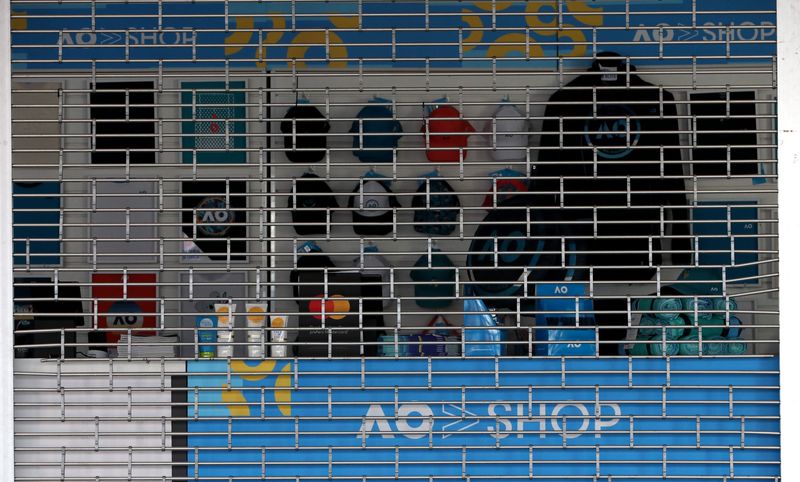By Wayne Cole
SYDNEY (Reuters) - A measure of Australian business conditions took a turn for the worse in January as a surge in coronavirus cases hit consumer spending, though firms were optimistic the hit would be short-lived.
Tuesday's survey from National Australia Bank (OTC:NABZY) (NAB) showed its index of business conditions dropped 5 points to +3 in January, as sales halved to +7 and profitability slid 8 points to +2. Its measure of employment dipped 3 points to -1.
The index of confidence bounced to +3, having dived 24 points in December to -12.
"Confidence fell sharply in December as the Omicron variant began to spread, but rebounded in January, reflecting that the outbreak looks to have peaked quickly and lockdowns have been avoided," said NAB chief economist Alan Oster.
"Conditions have remained in positive territory and are nowhere near as bad as we saw during lockdowns imposed in 2020 and 2021."
Inflation remained a problem as purchase costs rose at a record quarterly pace of 3.4% amid high commodity prices and supply bottlenecks. Labour costs held at a 1.9% pace, though retail price growth eased a touch to 1.3%.
"The economy is facing a period of elevated inflation while supply chain issues remain unresolved," added Oster.
A separate survey of consumers from ANZ out on Tuesday showed a drop of 1.9% last week, with media speculation about the risk of future rate rises apparently having an impact on heavily indebted households.
The Reserve Bank of Australia (RBA) last week conceded there were scenarios where interest rates could rise later this year should the economy keep surprising with its strength.

Also out Tuesday was CBA's latest measure of household spending intentions which showed a sharp 10% drop in January as a surge in coronavirus cases kept people at home.
Spending on bank cards, however, has stabilised in the last couple of weeks as cases decline and the overall economy looks to have weathered the outbreak well.